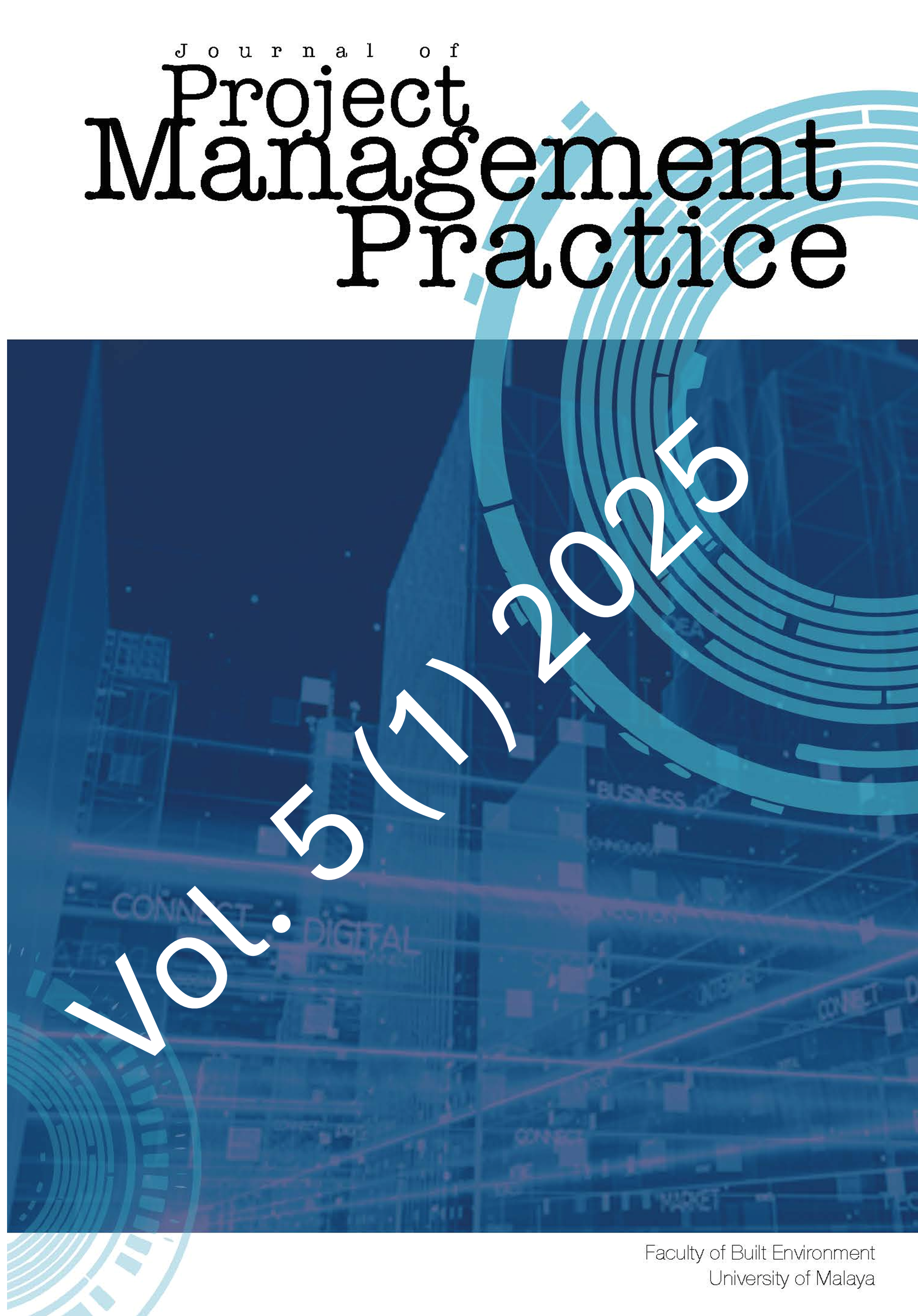Empowering Quantity Surveyors for Decarbonisation: Awareness and Role Prioritisation in Malaysia’s Construction Sector
Keywords:
carbon efficiency, carbon emissions, decarbonisation, Malaysia, quantity surveyors (QS)Abstract
The construction industry is a major contributor to global greenhouse gas emissions, accounting for 37 per cent of global emissions, with a significant share attributed to embodied carbon from construction materials. In Malaysia, the construction sector contributed approximately 24 per cent of national emissions, prompting the government to pursue a net-zero carbon target by 2050. Quantity surveyors (QSs) play a pivotal role in supporting the national decarbonisation agenda through cost planning, life cycle analysis, and procurement decisions, which influence the carbon outcomes of construction projects. However, limited empirical research has examined QS awareness of national climate policies or their readiness to support low-carbon practices. This study investigates two key areas: (1) the level of awareness among Malaysian QS professionals toward the national decarbonisation agenda, and (2) the perceived importance of QS roles in advancing decarbonised construction. A total of 89 responses were analysed using the Relative Importance Index and the Kruskal-Wallis test. Findings indicate that while QS professionals demonstrate a high awareness of general sustainability concepts, their awareness of Malaysia-specific policies and decarbonisation pathways remains limited. Cost-related roles, particularly project cost estimation and life cycle costing, were prioritised as central to supporting decarbonised construction. However, the perception of emerging roles, such as building performance reporting, varied significantly by experience level. The study highlights the need to embed decarbonisation competencies into professional frameworks, education, and policy. Strengthening role clarity and capacity building is essential to position quantity surveyors as strategic enablers in Malaysia’s transition to a low-carbon construction sector.

